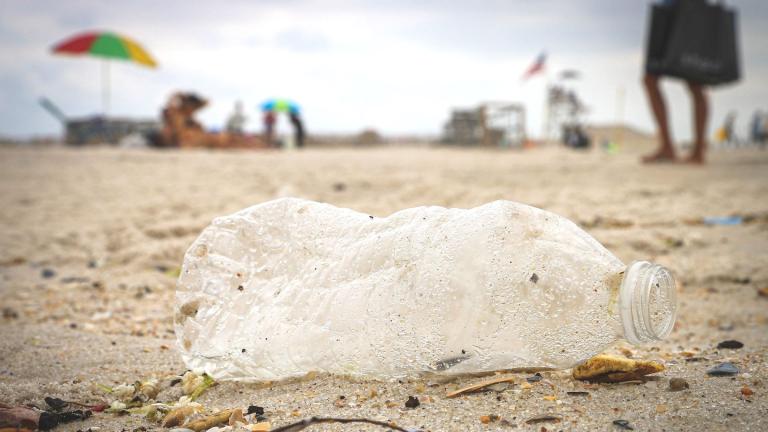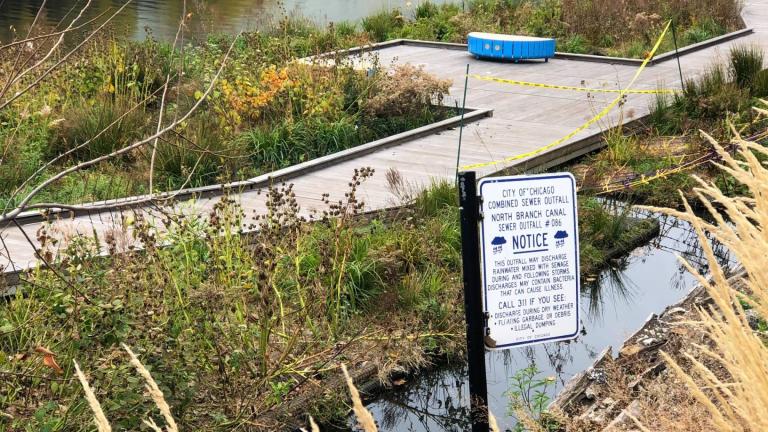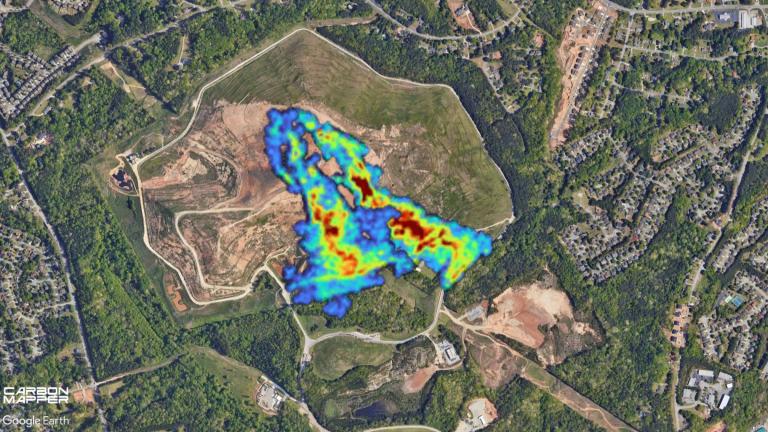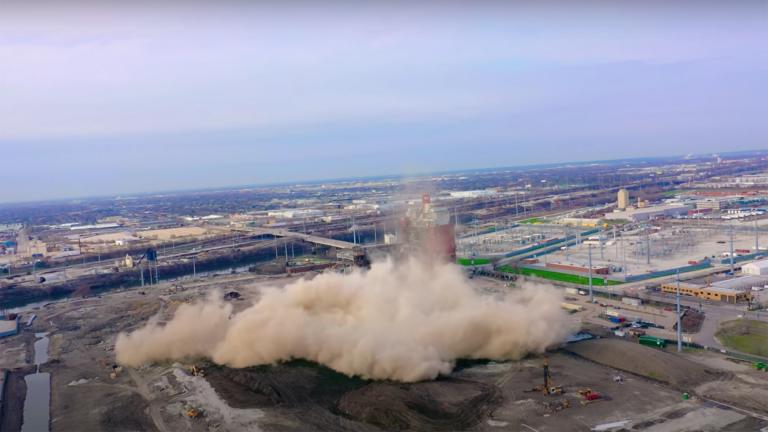Illinois lawmakers are eyeing a bill that would force the owner of a decommissioned generating station on the shores of Lake Michigan to clean up all the coal ash left behind.
Coal ash, the byproduct created when plants burn coal for power, contains potentially dangerous materials like arsenic, mercury and cadmium that can endanger nearby water supplies. Since coal-fired power plants use a lot of water to keep their equipment cool, they’re often near bodies of water like Lake Michigan — including Midwest Generation’s now-decommissioned generating station in Waukegan.
“The last thing that we want to do is have a catastrophe on our lakefront that’s going to impact the drinking water of 6.5 million people,” said Dulce Ortiz, one of the founders of Clean Power Lake County.
For years, she and other organizers fought to get the power plant in Waukegan closed. Now, they’re fighting to get the company to clean up all the coal ash left behind.
“They want to remove the coal ash from one of the ponds and they want to leave one, to cap it in place,” Ortiz said. “I feel like it’s kind of like leaving a ticking time bomb there.”
Those coal ash ponds are on the south end of the property, just a few hundred feet from Lake Michigan. Midwest Generation’s owner, NRG, only wants to address the two ponds. Advocates note there’s also a landfill on site.
“I want to be proactive, not reactive,” said state Rep. Rita Mayfield, D-Waukegan. She’s sponsoring a bill that would force NRG to remove all the coal ash from its Waukegan facility, which the company is not currently required to do.
“Now that they’re being asked to remediate these ponds, they’re like, ‘Oh, we can’t do it, we can’t do it, the sky is falling,’” Mayfield said. “It’s not that you can’t do it, it’s that you don’t want to do it.”
In a statement to WTTW News, plant owner NRG defended its plans to cap one pond and remove the ash from another.
“Contrary to a misinformation campaign driven by a small but vocal group who do not trust the regulatory process, MWG’s plan is scientifically and historically proven to be a safe, sound, and effective way to protect groundwater in Waukegan for generations to come,” the statement said.
“There are other coal ash sites along Lake Michigan that have been closed by capping in place, and there’s been no issues with that,” said Donovan Griffith, senior director of government affairs for the Illinois Manufacturers’ Association, which opposes the bill.
Griffith argues coal ash regulation should be handled by the state EPA, not lawmakers.
“They can determine that it can be capped and the coal ash can remain in place, and the Illinois EPA can determine that the coal ash needs to be removed, but they are the experts that should make that determination, not the members of the Illinois General Assembly,” Griffith said.
The Illinois Environmental Regulatory Group agrees, telling WTTW News in a statement that lawmakers should let a coal ash law passed two years ago play out: “regulations are still in development and the existing regulations have not been in place long enough to assess their effectiveness.”
It’s not just action at the state level that’s possible. The U.S. Environmental Protection Agency is also considering tightening its regulations on coal ash landfills.
Federal rules don’t mandate cleanup of sites that stopped receiving the byproduct before 2015, when the current regulation went into place.
The organization Earthjustice has studied coal ash left behind at plants across the U.S.
“It looks to us like there’s about a half a billion tons of coal ash and those inactive landfills around the country,” said Earthjustice senior attorney Jennifer Cassel.
That’s why Earthjustice led a lawsuit against the EPA aimed at forcing the agency to regulate all coal ash landfills. Cassel said the carcinogenic and neurotoxic material in the ash can seep into groundwater, and that many ponds and landfills may not be structurally sound.
“We think that the evidence is going to be clear that those things do pose a risk to health, to the environment, and desperately need to be regulated,” Cassel said.
For Ortiz, more action at the state level is critical for places like Waukegan — which is already home to five EPA-designated “superfund” sites, contaminated with hazardous material.
“We’ve dealt with a lot of industry that have made their profits and left their mess behind,” Ortiz said. “We just want to have a beautiful community to thrive in.”
The Waukegan bill has cleared a state House committee. If it’s passed by the full House, it’ll head to the state Senate.
As for the EPA’s potential rule change on legacy coal ash landfills, a public comment period just ended. The agency is set to announce its decision by early May.
Contact Nick Blumberg: [email protected] | (773) 509-5434 | @ndblumberg







